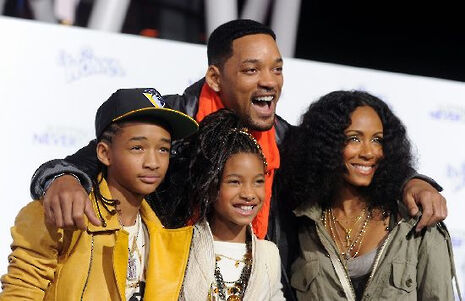For ethnic minorities, ‘being yourself’ is easier said than done
Prescriptive expectations and stereotypes make the question of identity a difficult one to navigate for people of colour, argues Yukiko Lui

At some point in their lives everyone struggles with their own identity. First, you need to find who you are. Then comes the arguably more difficult thing of procuring the courage or the confidence to be that person. We think of the journey to being yourself as involving tastes and interests – cool music, hobbies, and clothes (wavy or not). We value authenticity and genuineness, but apparently only when that authenticity seems to confirm our preconceived notions of what it should look like. This is why movements have emerged around black nerds and women gamers, who inhabit spaces which are traditionally allocated to young white men.
It’s just another way in which experiences of marginalisation and discrimination affect the way we behave in society. The public lives of people of colour can be marred by an awareness that society prescribed a certain way of, for example, being a woman or being black as the only correct way. This means marginalised people can be forced to live double lives. There is often a tension between wanting to fit in with the whims and fancies of the majority and maintaining and cherishing solidarity with your own communities.
“The concept of being yourself is loaded when you’re an Asian girl who’s also quiet and shy by nature, or a black girl who’s effusive and extroverted”
Particularly at Cambridge, a place notoriously unrepresentative of the rest of the country and the world at large, many students have been forced to negotiate the pitfalls of wanting to be unapologetic about who they are and not wanting to validate stereotypes held about them. The concept of being yourself is loaded when you’re an Asian girl who’s also quiet and shy by nature, or a black girl who’s effusive and extroverted. People in these situations are really trapped between two unsatisfactory options. Where should you draw the line between being yourself and resisting stereotypes, and can that line even be drawn?
It’s all linked to the disproportionate burden people have to bear in situations where they find themselves marginalised and a minority. There is still an overwhelming feeling that by existing as a racial or ethnic minority in such spaces, you have taken up the mantle of being a representative for the rest of your race or ethnicity. The hyper-awareness of how your own actions will affect the way members of your race or ethnicity will be viewed in future is something familiar to many. This feeds into some of the rationale behind respectability politics, an idea that originated in the American civil rights movement, which stipulates that minorities should police themselves and their behaviour so as to become accepted by majority communities. It says that being respectable, upstanding citizens will spirit away bias and discrimination. This constitutes another onerous limitation on the freedom of people of colour, and its dubious merits aside, is another way in which our behaviour is restricted. The rights and freedoms won off the back of carving out a very specific cookie cutter of what a marginalised person should act, speak or look like are substantially diminished.
We are still too prescriptive about the identities we allow marginalised people to inhabit. We need to stop regulating what we see as ‘normal’ for people of colour, and this is something that comes with visibility and representation. Until then, ‘being yourself’ will continue to be in the hands of those whose privilege allows them to be carefree.Especially in the realm of artistic pursuits our conceptions of normality and ordinariness still don’t let people of colour have full freedom to decide who they want to be. The Smith siblings, Willow and Jaden, are a prime example of this. As ‘carefree black kids’ they are unencumbered by the weight of stereotypes or preconceived notions as to what they should be interested in because of their race. While their tweets and Instagram captions can be a bit wacky, Willow and Jaden don’t deserve the ‘weird’ label just because their interests happen to fall slightly outside of what we would expect. The word ‘carefree’ is essential; the Smith kids have had the opportunity to explore who they want to be away, for the most part, from the pressures and stigma of stereotypes. Of course, this is something that comes with the economic and social privilege they have inherited from their famous parents, but they represent a future in which our identities and the things we like don’t have to be in artificial conflict.
 News / Judge Business School advisor resigns over Epstein and Andrew links18 February 2026
News / Judge Business School advisor resigns over Epstein and Andrew links18 February 2026 News / Gov grants £36m to Cambridge supercomputer17 February 2026
News / Gov grants £36m to Cambridge supercomputer17 February 2026 News / Hundreds of Cambridge academics demand vote on fate of vet course20 February 2026
News / Hundreds of Cambridge academics demand vote on fate of vet course20 February 2026 News / CUCA members attend Reform rally in London20 February 2026
News / CUCA members attend Reform rally in London20 February 2026 News / Union speakers condemn ‘hateful’ Katie Hopkins speech14 February 2026
News / Union speakers condemn ‘hateful’ Katie Hopkins speech14 February 2026









